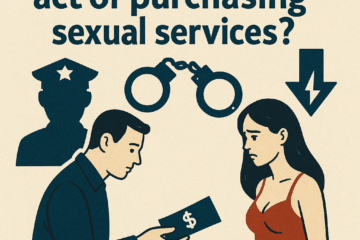Sentencing for Criminal Offenses in BC
Table of contents
In British Columbia (BC), as in other jurisdictions, the sentencing of criminal offenses is a critical phase in the criminal justice process. It involves a judge determining the appropriate punishment after a defendant is convicted of a crime. This blog post provides an overview of how sentences are determined in BC and the factors that influence these decisions, offering valuable insights for anyone navigating the legal system or interested in the principles of criminal justice.
Understanding the Sentencing Process in BC
1. Sentencing Hearing: After a conviction, the next step is the sentencing hearing. This can occur immediately after the conviction for less serious offenses or be scheduled for a later date for more serious crimes. During this hearing, both the prosecution and defense have the opportunity to present evidence and arguments regarding the appropriate sentence. This may include victim impact statements, information about the defendant’s character, and other relevant factors.
2. Types of Sentences: Sentences in BC can range from fines and community service to probation and imprisonment. For more severe offenses, mandatory minimum sentences may dictate the minimum term a judge must impose, but otherwise, judges have discretion within the limits prescribed by law.
3. Concurrent vs. Consecutive Sentences: If a defendant is convicted of multiple charges, a judge must decide whether sentences will run concurrently (at the same time) or consecutively (one after the other). This decision significantly impacts the length of time a defendant will spend in custody.
Factors Influencing Sentencing Decisions
Several factors influence sentencing decisions in BC, aiming to balance the objectives of deterrence, retribution, rehabilitation, and protection of the public:
1. Gravity of the Offense: The nature and seriousness of the offense are the primary considerations. More severe crimes typically result in harsher sentences.
2. Defendant’s Background: The judge will consider the defendant’s criminal history, character, and personal circumstances. First-time offenders may receive more lenient sentences compared to those with a history of criminal behavior.
3. Impact on Victims: Victim impact statements play a crucial role in sentencing, as they provide the court with insight into the emotional and physical toll of the crime on the victims.
4. Mitigating and Aggravating Circumstances: Mitigating factors such as showing remorse or cooperating with law enforcement can lead to reduced sentences. Conversely, aggravating factors like the use of a weapon or committing a crime against a vulnerable individual can increase the severity of the sentence.
5. Precedents and Legal Guidelines: Judges also consider sentencing precedents and guidelines to ensure consistency in the administration of justice.
Recent Trends in Sentencing in BC
Recent legal reforms and societal shifts influence sentencing trends in BC. For instance, there has been an increasing emphasis on rehabilitation and restorative justice practices, especially for minor offenses and offenses involving marginalized individuals. These approaches often prioritize community-based penalties over incarceration.

FAQ
Sentencing can occur immediately after a conviction for minor offenses or be scheduled weeks or months later for more serious crimes.
Yes, both the defense and the prosecution can appeal a sentence. Appeals must be based on arguments that the sentence was not proportionate, was influenced by an error in law, or was excessively harsh or lenient.
Not all offenses, but certain serious crimes, such as some drug trafficking and sexual offenses, carry mandatory minimum sentences under Canadian law.
Juvenile offenders are sentenced under the Youth Criminal Justice Act, which emphasizes rehabilitation and reintegration into society. The act provides different sentencing options and procedures than those for adults.
Parole and probation are tools used to monitor and rehabilitate offenders in the community. Parole allows an offender to serve part of their sentence under supervision in the community, while probation is often part of a sentence itself, allowing an individual to remain in the community under specific conditions.
Pax Law can help you!
Contact Samin Mortazavi, a lawyer at Pax Law Corporation, where expertise and dedication converge to resolve your criminal law needs. As a knowledgeable lawyer with a profound understanding of Canadian criminal law, Samin Mortazavi offers strategic guidance and advocacy for navigating complex criminal cases. Whether it’s defending against charges, handling criminal appeals, or advising on legal rights, Pax Law Corporation is your trusted partner in managing your criminal law matters. Protect your future by reaching out to Samin Mortazavi today
Our lawyers and consultants are willing, ready, and able to assist you. Please visit our appointment booking page to make an appointment with one of our lawyers or consultants; alternatively, you can call our offices at +1-604-767-9529.
Discover more from Pax Law Corporation
Subscribe to get the latest posts sent to your email.



0 Comments